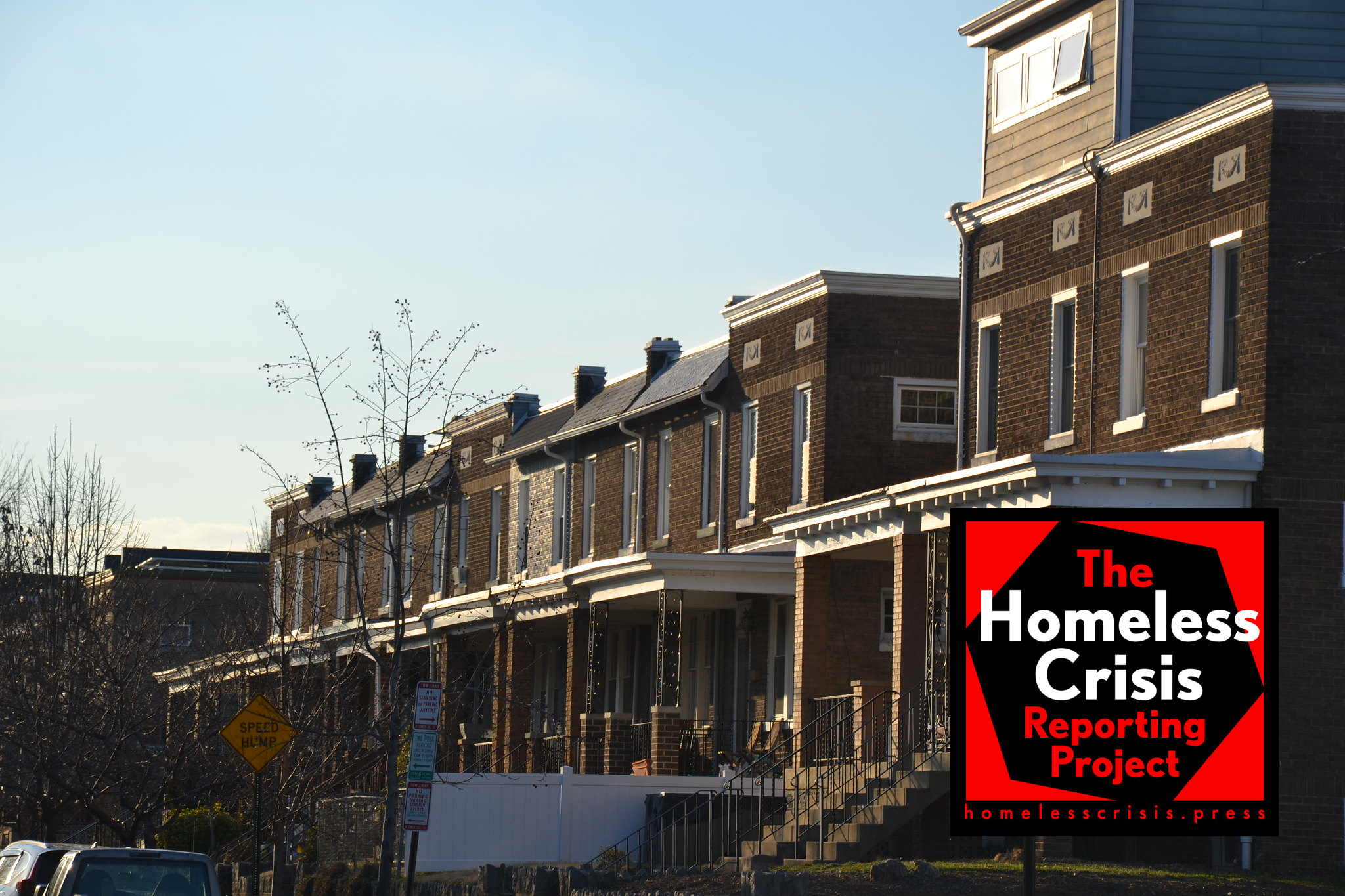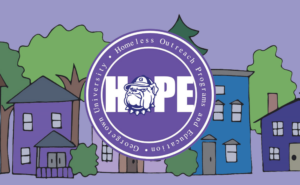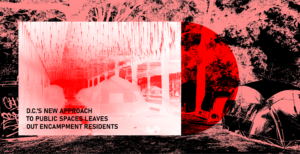Mayor Muriel Bowser has introduced the Career Mobility Act Plan, a rent and income support plan that started its pilot phase at the end of September. This “Career MAP” program aims to help 600 selected families with transitioning out of homelessness by providing personalized career support, up to $10,000 in cash, and rent assistance.
The program seeks to aid a specific set of families who do not require permanent housing vouchers but may face a “benefits cliff,” which occurs when an increase in income edges a family out of eligibility for public assistance. In these cases, the total take-home pay of a family actually decreases due to the loss in benefits. The families selected for the program are currently participating in the Family Re-Housing Stabilization Program, which offers a 12-month rent subsidy for families facing this benefits gap.
City programs have historically neglected these kinds of transition periods. Abby Sypek, community engagement manager at Everyone Home D.C.—a nonprofit that works to create long-term solutions to houselessness—explained the unique nature of Career MAP in helping families through periods without access to benefits like the Supplemental Nutrition Assistance Program (SNAP) or Temporary Assistance for Needy Families (TANF).
“The key difference of the Career MAP program is that it will prevent families from falling off the benefits cliff by bridging the gap between lost benefits and increased income,” Sypek wrote in an email to the Voice. “This is the first program that aims to fill this need, so we are excited about the potential outcomes.”
The pilot program was designed based on conversations, interviews, and focus groups with D.C. residents who currently receive support from the Department of Human Services (DHS), according to director Laura Zeilinger. Longer-term resource expansion—as opposed to mere short-term aid—has been emphasized by some as a more meaningful form of support.
“More city programs with outlet centers, programs that contribute to growth, instead of something every day,” one person experiencing homelessness, who declined to share their name, said when asked of ways the city could expand its resources.
As COVID-19 housing protections are coming to an end, evictions are slowly increasing, underscoring the importance of systematic income and rent assistance programs. Given rising inflation costs, the average rent for a one-bedroom apartment is nearly $2,300 a month, which is nearly untenable for many families without economic assistance.
“When people are in these types of programs, they’re in survival mode,” David Vicenty, the division director for in-hire at Friendship Place, a nonprofit in the D.C. area that provides a variety of resources to unhoused people, including psychiatric support, job placement, shelter, and more, said. “Anything that can assist in housing or taking that distraction away is helpful.”
For each month the family is able to pay their portion of rent, the program will deposit $200 into a savings account. It will also supply benefits, like healthcare, food assistance, or subsidized housing, if new employment opportunities or higher income mean these are no longer accessible.
The program’s limited scope, however, means a significant portion of people experiencing houselessness are not available to receive the Career MAP’s assistance. There are 2,900 families in the FRSP alone, and over half applied to the Career MAP program, meaning at least 800 families remain outside the program scope.
The initial program would have allocated $11.7 million in federal funding from the American Rescue Plan Act over three years to 300 families. Because of the overwhelming interest the program has received, however, Bowser has expanded the pilot to include an additional $13.1 million to be given to 300 more families.
“If this pilot is found to better serve families transitioning out of homelessness, D.C. could incorporate Career MAP strategies into mainstream homeless services for families,” Sypek wrote of the program’s future.
Despite these optimistic sentiments about the longevity of the program, several coordinators at nonprofits the Voice spoke with described being unaware of the new program and partly pointed to D.C.’s confusing network of services and benefits.
“Sometimes, having too much is a harm,” Vicenty said of the bureaucracy that accompanies the network of numerous nonprofits and city programs working to end houselessness in the District. “Why so many hoops to jump through?”
This is not Bowser’s first foray into implementing new rent and income support programs. Since her first term in 2016, she has made combatting houselessness a central part of her agenda—to mixed success. The Homeward and Homeward 2.0 programs transformed the family services system, expanding shelters and drastically reducing family homelessness by 78 percent. Yet, other programs have received scrutiny for how they have treated residents experiencing homelessness, including brutal encampment clearings under the CARE program.
This combination of successes and failures underscores a central theme in how many lawmakers approach homelessness—a lack of comprehensive understanding of how those seeking services interact with them.
“The lawmakers involved in housing, there have not been enough of them on the frontlines to make services or laws that make sense in these times and to make people independent,” Vicenty said.
The future of the program is unknown, but resource coordinators remain optimistic.
Although Sypek noted that several families at Everyone Home D.C. have yet to be contacted by a Career MAP program navigator as of Oct. 11, she remains optimistic about the program’s impact. “We anticipate that it will create some breathing room for families by providing flexible financial and rental assistance,” Sypek wrote.
This piece was published as part of the 2022 Homeless Reporting Project in collaboration with other newsrooms. Read our contribution to last year’s project here. To learn more about the project and read this year’s other pieces, visit https://homelesscrisis.press/.








I need help
With housing
Velva Gunther is Velva Gunther
My phone number is 202-424-4758